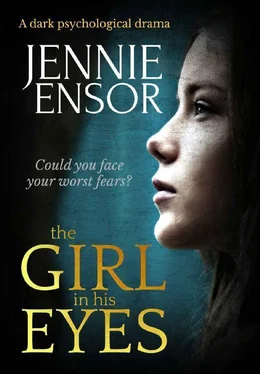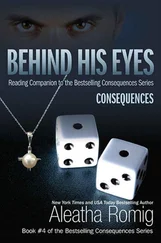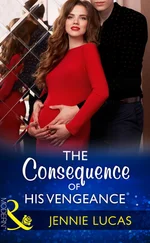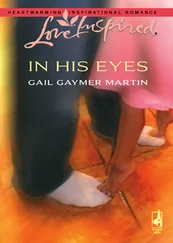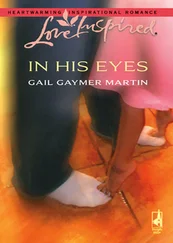Paul grunted. He was peering into his glass, lost in thought. Not pleasant thoughts, by the look on his face. But she knew if she asked he would probably say ‘it’s nothing’ in an irritated voice.
The dining room was full of sedately seated couples. It contained more large, gloomy, ornately-framed paintings. A black-suited waiter brought over a bottle of wine and poured some into Paul’s glass. Suzanne watched Paul bring the glass to his nose and swirl the liquid, before taking a sip and nodding to the waiter. Whereas she always felt slightly uncomfortable with the formality of this sort of restaurant – where heavy silver cutlery rested on crisp white linen, your napkin was instantly placed on your lap, and your glass was refilled every few minutes – Paul was in his element. He always knew which wine to order, how to pronounce everything on the menu, and what was in every dish.
‘Happy anniversary, darling,’ Paul said when the waiter left them, holding his glass over the candle. ‘Here’s to our first twenty-five years.’ Glasses clinked. Across the room, a young man began to play the grand piano. ‘You look fabulous in that dress.’
It was her sexiest dress, the hemline a couple of inches above the knee, made of loosely woven black jersey. She didn’t wear it much these days.
The waiter arrived with their starters. Suzanne took a mouthful of lobster bisque, taking care to sip from the side of the spoon and not to drip any liquid on the spotless white tablecloth, or her dress for that matter. The napkin was large and spread across as much of her lap as possible.
‘Fiona, don’t do that!’
The outburst came from a table across the room. A woman in her forties was scolding a slender, thick-lipped girl, with very long, intensely red hair, who looked to be in her early teens. The man beside her busied himself with the menu, while a sullen, younger boy dropped his fork repeatedly on the table. Unable to suppress a smile, Suzanne glanced at Paul. The scene took her back to some of their own fraught family meals. He too was watching them, his head cocked.
She took another mouthful of bisque. ‘I hope Laura will be alright.’
Paul didn’t answer. He’d put down his soup spoon and was still gazing intently across the room.
‘Paul?’
‘Sorry, what did you say?’ He frowned and made an impatient clucking noise. ‘Why shouldn’t she be alright?’
‘I told you, I had a feeling when she phoned that something was bothering her.’
‘She’s unemployed still. She’d be bothered about that, I should think. How on earth is she going to manage without a job?’
‘It wasn’t that. Not just that. There was something else.’ She couldn’t quite nail what it was. It had struck her that Laura was holding something back, something was definitely not right. The phone, though, made it even harder to communicate with Laura than face to face.
‘Did she say anything?’
‘No, nothing.’ She finished her soup and patted her mouth with her napkin, relieved that none of the liquid had found its way to her dress. ‘I’ll find out when I go over next week, I suppose. She’s asked me over for lunch.’ At long last , she silently added. She’d forgotten when she’d last visited Laura.
‘You invent things to worry about, Suzanne.’ He tore a piece of bread from the freshly baked sourdough roll on his plate, not looking at her. His mind was somewhere else, again.
‘Did you reply to your sister’s email?’ she asked, remembering his news of the previous week. His mother had no more than two months left, the doctors thought; the cancer had reached her brain.
Paul drummed his fingers on the table. ‘I told her I’m not going.’
The familiar frustration grew inside her. Why was he always so rigid about things?
‘Canada isn’t so far away,’ she said. ‘You haven’t been back once in all the time we’ve been together. You might not get another chance to talk to her.’
He gave her a warning look. Her instinct was usually to keep quiet so as not to upset him. This time, curiosity, or something else overcame it. He’d left home as soon as he could to get away from his parents. His father had been strict and distant, had cared only about him being top of the class, Paul told her soon after they’d met. And he’d hated his mother.
‘Was she really that bad?’
He tilted his head upwards, eyes shut, and let it rest there for a few moments. A rush of breath escaped his mouth as his eyes met hers.
‘She was fucking terrible. What she did to me…’ His gaze retreated from her and he went to some place she couldn’t reach. ‘I came seven years after Vicky. She never wanted me from the start. Vicky and Tania were everything to her, her perfect family.’ He paused. ‘I told you this before, didn’t I? There was some problem with her coil. I read about it in her diary. She didn’t want another child, and definitely not a boy.’ His mouth twisted into a smirk, making his face ugly. ‘But she was from a good Catholic family, so she couldn’t get an abortion.’
Although she had heard this before, it still shocked her to hear about his mother. She had met her briefly, during their three-day visit to London to see their son get married. Lucinda. A tall, thin Canadian woman, who carried herself like a dancer, his mother had been reserved, aloof at times, though hardly the ogre she’d expected. In contrast, his father, a heavy, boxy man, abrasively forthright in manner, had reminded her of a prowling bear. Paul had treated them both with cool politeness, as if they were an aunt and uncle he was obliged to tolerate.
‘Isn’t there a chance,’ she began cautiously, ‘that you two could heal the rift somehow? Or to at least come to some resolution. Once she’s gone, you won’t get another chance.’
‘Don’t you think I know that already?’
‘I’m just saying. It’s up to you, of course it is. It just seems such a waste, to shut them out of your life like this—’
‘Those are your issues. You can’t get over losing your parents, let alone Richard, so you try to turn everyone else’s into what you never had.’ His voice softened. ‘Sorry, sweetheart, I know you’re only trying to help.’
Her own parents had meant so much to her; her father’s death in a sailing accident when she was eight years old was the worst thing she’d ever known, by far. Twelve years on, her mother was struck down by a lorry as she cycled to the shops. And then it was Richard’s turn. The unfairness of it all still rankled, especially when she was with people who’d never had to face such loss. In her worst moments, she wondered if she had been cursed.
‘So,’ Paul began, breaking off another mouthful of bread. ‘You’ll be off to that thing of yours next weekend?’
‘The retreat, you mean? Yes, I’ve booked a room.’ She braced herself for his reaction. He would no doubt tell her what a waste of time these mumbo-jumbo activities were, and try to persuade her not to go.
‘When are you leaving?’
‘Friday afternoon. I’m taking Jilly. She’ll share the cost of the fuel.’
‘You’re not back till Sunday?’
‘Around six in the evening, depending on the traffic. You’ll have to fend for yourself, darling.’
‘Oh, I’ll manage.’ He smiled. ‘I hope it goes well, Suze. And you get what you want out of it.’
Goodness , that was unusually positive . A band of tension left her neck and shoulders. They should go away more often.
As she was scraping up the last of her dessert, Paul’s head moved. His eyes were tracking something behind her. She turned around. The family of four were making their way out of the dining room. The parents were followed by the boy and, some way behind, the redhead. Her hips swayed as she walked. Her hair came down almost to her waist, shimmering sunset tones under the chandeliers.
Читать дальше
